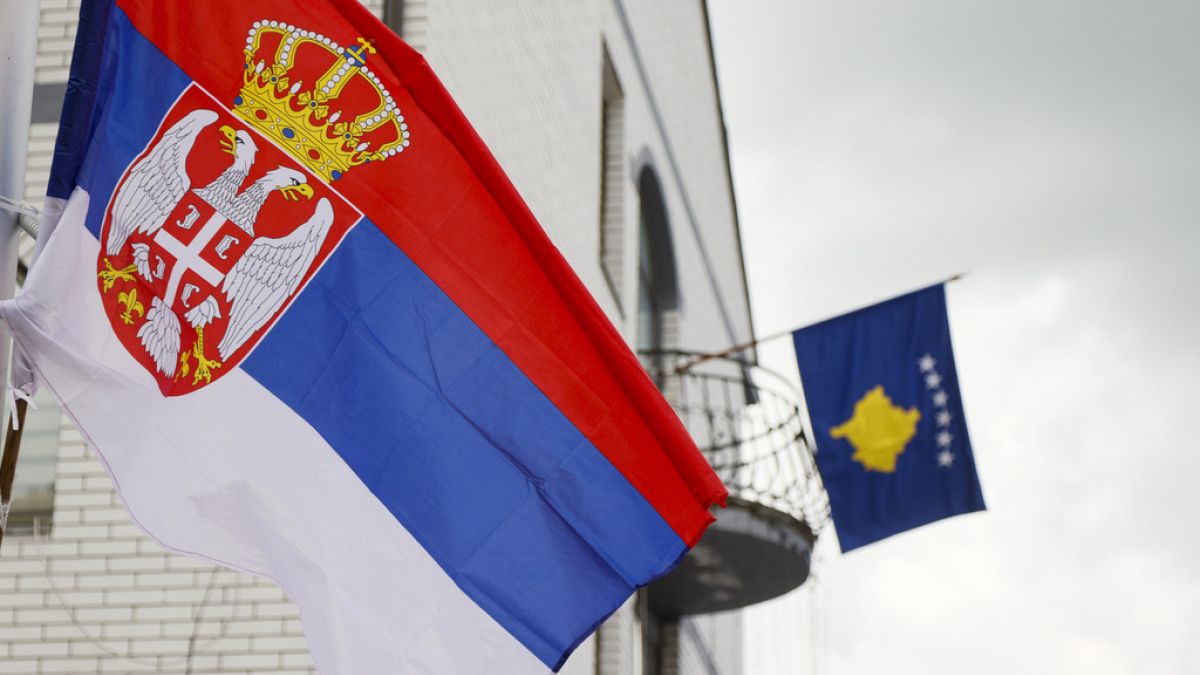Europe
PM Kurti’s party is out in front ahead of Kosovo’s election

Kosovo Heads to the Polls: A Pivotal Election for the Future
Kosovo is gearing up for a landmark parliamentary election on Sunday, a vote that could shape the country’s political landscape and its stalled normalization talks with Serbia. This election is a significant test for Prime Minister Albin Kurti, whose left-wing Vetevendosje! (Self-Determination Movement) party swept to power four years ago in a landslide victory. Eligible voters, including Kosovo’s diaspora, will cast their ballots to elect 120 lawmakers from among 26 political groupings and one independent candidate. The election will run from 7 a.m. to 7 p.m., with 10 seats reserved for the Serb minority and another 10 for other minority groups. This is the first time since Kosovo declared independence in 2008 that its parliament has completed a full four-year mandate, marking a milestone in the country’s political stability.
A Changing Political Landscape and Economic Challenges
Kosovo, with a population of 1.6 million, is one of the poorest countries in Europe, with an annual GDP of less than €6,000 per capita. The country faces significant economic challenges, including high poverty rates and a lack of foreign investment. The U.S. Agency for International Development (USAID) has been a key driver of economic growth in Kosovo, with the U.S. investing nearly €1.9 billion since 1999. However, a recent 90-day freeze on U.S. funding for various projects has added to the country’s economic woes. During the election campaign, political parties have made ambitious promises to raise public salaries and pensions, improve education and healthcare, and combat poverty. However, these pledges have been criticized for lacking clarity on how they would be funded or how foreign investment would be attracted.
The Main Contenders and Their Visions
Prime Minister Albin Kurti’s Vetevendosje! party is widely seen as the front-runner in the election, but it is unlikely to secure a majority, raising the possibility of coalition negotiations. Kurti has positioned himself as a leader committed to Kosovo’s future, urging voters to “vote for Vetevendosje!” on February 9. The other main contenders include the Democratic Party of Kosovo (PDK), whose leaders are facing war crimes charges at The Hague tribunal, and the Democratic League of Kosovo (LDK), the country’s oldest party, which has seen its support decline since the death of its leader, Ibrahim Rugova, in 2006. Both parties have pledged to improve the quality of life for Kosovars, with the PDK’s Bedri Hamza promising “a plan for each city, each family, each person” and the LDK’s Lumir Abdixhiku vowing to provide “an alternative to guarantee a better life in Kosovo.”
International Pressures and the Normalization Talks
The election also holds significant implications for Kosovo’s normalization talks with Serbia, which have been facilitated by the European Union. While the talks have stalled, the EU has made it clear that it expects Kosovo’s new government to engage constructively in the process. The normalization of relations with Serbia is seen as crucial for both countries’ paths to EU integration. However, the talks have received little attention during the election campaign, despite ongoing tensions between the two nations. Serbia does not recognize Kosovo’s independence, declared in 2008, and the situation remains volatile, particularly in northern Kosovo, where the majority of the Serb minority resides. The EU has called on Kosovo to take steps to de-escalate tensions in the region, and the implementation of previous agreements, such as the creation of an Association of Serb-Majority Municipalities, remains a contentious issue.
The Role of the Serb Minority and International Observers
The Serb minority in Kosovo, which has 10 guaranteed seats in parliament, continues to play a significant role in the country’s political landscape. The Serbian List party, which is seen as closely aligned with Serbian President Aleksandar Vučić’s Progressive Party, has been a key player in the north of Kosovo. International observers, including a team of 100 from the European Union and 18 from the Council of Europe, will monitor the election to ensure its integrity. KFOR, the NATO-led stabilization force, has also increased its presence in Kosovo in anticipation of potential tensions during the election period. The international community has urged Kosovo’s new government to restore credibility and partnership with the EU and the United States, particularly in the context of the normalization talks with Serbia.
The Road Ahead: Challenges and Opportunities
As Kosovo looks to the future, the outcome of the election will determine the direction of the country’s domestic and foreign policies. Mimoza Ahmetaj, an opposition MP and former ambassador to the EU, has called for a return to the dialogue with Serbia, emphasizing the need to move beyond the current disputes and create a more prosperous future for all Kosovars, regardless of their ethnicity. Analyst Ilir Deda has similarly stressed the importance of the new government taking decisive steps to restore trust with international partners and fulfilling the obligations stemming from the dialogue with Serbia. With the election marking a new chapter in Kosovo’s history, the country has an opportunity to address its economic and political challenges and move closer to its goal of EU integration. However, the path ahead will require difficult decisions and a commitment to constructive engagement with both domestic and international partners.